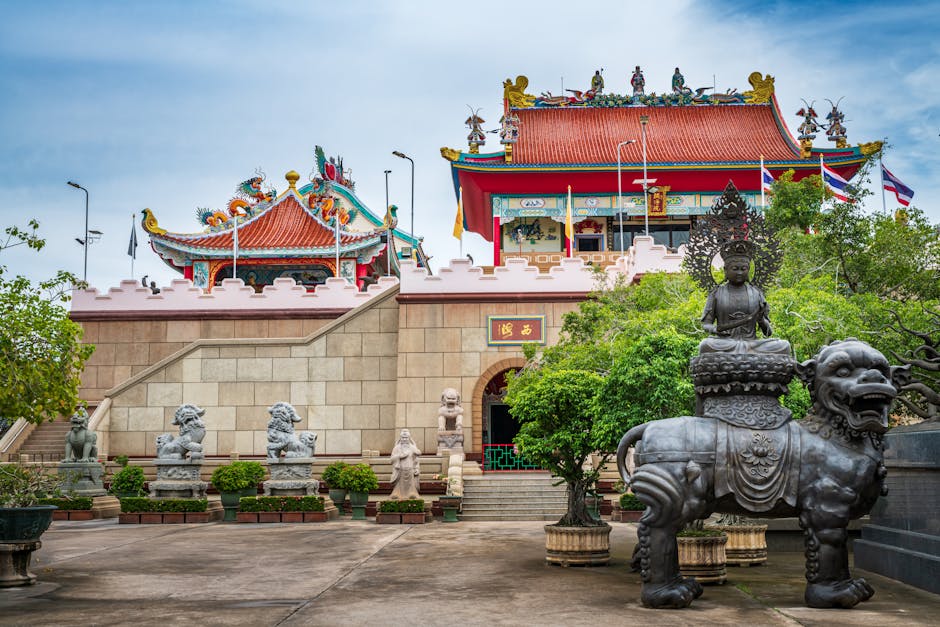The experiences travellers seek are often deeply intertwined with the cultural fabric of the destinations they choose. A profound understanding of this intricate relationship reveals how cultural elements significantly shape tourist decisions, from the initial spark of inspiration to the final satisfaction of a journey. This exploration delves into the multifaceted ways in which culture influences travel choices, illuminating its impact on everything from the types of destinations pursued to the specific activities enjoyed.
A primary influence is the allure of the unfamiliar. Many tourists are driven by a desire to immerse themselves in different customs, traditions, and lifestyles. This intrinsic human curiosity often acts as a potent motivator, drawing travellers to regions renowned for their unique cultural heritage. Think of the captivating rhythms of flamenco in Spain, the serene temples of Bali, or the vibrant markets of Marrakech. These cultural hallmarks are powerful magnets attracting those seeking authenticity and a break from their routine.
Cultural attractions, such as historical landmarks, museums, and festivals, also play a crucial role in shaping tourism decisions. The preservation and promotion of cultural assets often become cornerstone components of a destination’s marketing strategy. A well-preserved historical city, renowned for its architectural marvels or a captivating folk festival, is likely to become a desirable destination for travelers deeply engaged with cultural experiences. The visual aesthetic, the vibrant atmosphere, and the stories associated with these landmarks frequently resonate with individuals seeking enriching journeys.
Moreover, intangible cultural factors, such as language, religion, and social norms, significantly shape tourist behaviour. Consider the significance of language. A tourist seeking interaction with the local community may actively attempt to learn basic phrases of the local tongue. This genuine effort demonstrates respect and underscores the importance of cultural sensitivity in a travel encounter. Similarly, an awareness of religious customs and social etiquette can influence the choice of accommodation, dining preferences, or even clothing. Tourists strive to align their behaviour with local norms, seeking to embrace the cultural context rather than disrupt it.
Beyond individual preferences, cultural norms within a specific society can indirectly influence travel choices. For example, the importance placed on family travel in certain cultures might lead to greater demand for family-friendly destinations, resorts, and accommodation options. Community-based tourism initiatives, often tailored to specific cultural contexts, can further foster such preferences. These factors shape destination marketing strategies, highlighting themes of cultural inclusion and responsible tourism practices.
A nuanced understanding of cultural diversity is equally vital. Different cultural groups may have varied preferences and expectations. For instance, certain ethnic or religious communities might prioritize destinations with specific historical or religious significance. This insight is crucial for tourism operators, who must cater to the diverse needs and expectations of their target audiences, including potential accessibility needs and cultural sensitivities.
Moreover, the concept of ‘cultural authenticity’ often plays a pivotal role. Tourists seek genuine experiences that connect them with the cultural heart of a destination. This desire has given rise to increasing interest in community-based tourism and homestays, where tourists engage directly with local families and communities. Authentic encounters can foster a deeper appreciation for the local traditions and offer valuable insights into the daily lives of residents.
However, a critical consideration is the impact of cultural commodification on tourism choices. When cultural elements are simplified and presented in overly stereotypical ways for tourism purposes, it can diminish the authenticity of the experience and lead to a superficial understanding. This may result in a disappointment for the traveller, and potentially, damage the local communities’ well-being. Careful planning and responsible tourism practices can mitigate such negative effects.
Sustainable tourism, for instance, becomes paramount in ensuring that cultural preservation is an integral part of travel decision-making. Responsible travel practices can help generate economic benefits for local communities and support the preservation of their cultural heritage. The long-term sustainability of tourism necessitates active engagement with the local culture, fostering respectful interactions, and promoting environmentally conscious travel decisions.
In summary, the interplay of culture and tourism is multifaceted and dynamic. From the powerful allure of unique customs to the nuanced aspects of social norms, cultural factors significantly shape tourist choices. Understanding these connections is crucial for tourism operators, marketers, and policymakers to attract the right tourists, provide authentic experiences, and preserve the cultural heritage of the destinations being visited. By embracing a culturally sensitive approach, the travel industry can nurture positive relationships with local communities, ensuring sustainable and enriched travel experiences for all. This delicate balance is critical to both promoting tourism and preserving the unique cultural assets that make travel destinations so captivating.
